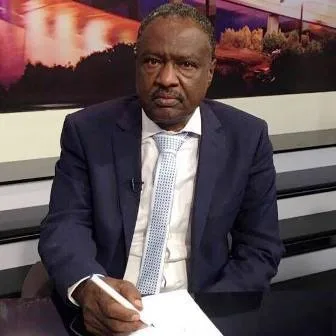What Makes Recent Ministerial Appointments Special

Rashid Abdel Rahim
The recent ministerial appointments confirm that the state leadership is working collectively, making choices that meet the demands of the current phase. This is evident despite the leadership also focusing on leading the army, which has achieved victories and success in this regard.
The appointments go beyond the usual suggestions of individuals promoting themselves or political forces pushing their supporters and affiliates.
These appointments underscore a decisive stance against political forces supporting the rebellion, represented by the appointment of a media figure with a proven record in opposing the “Advance” group and all pro-rebellion voices.
The appointment of Khalid Al-Ayesar as Minister of Information reflects the state’s appreciation for the media’s clear contribution to the “Dignity War.”
The appointment of Ambassador Ali Youssef shows reliance on a cadre from the Ministry of Foreign Affairs, as the newly appointed minister is from within the ministry and known for his exceptional performance and contributions to civil work supporting the state.
Additionally, Ali Youssef’s appointment signals the intention to improve relations with major countries outside the U.S. sphere. He previously worked in China and played a key role in bringing a Chinese company to work in oil extraction and achieving success with international organizations.
This well-chosen lineup highlights the need to complete the structure by appointing a Prime Minister, essential for a strong, cohesive government as the war nears its end.
The war has significantly impacted Sudan’s various states, necessitating the appointment of a new Minister for Federal Governance to establish a foundation for restoring balance, affirming Sudan’s unity, and distancing any rebellious influences.
The main benefit of these government adjustments lies in their indication of a decisive military victory and preparations to confront and defeat the rebellion through media, foreign relations, and dismantling the economic networks that the rebellion has embedded in sectors such as the gold trade and foreign currency.
The Chairman of the Sovereign Council described the rebellion as a “cancer” that will be eradicated from Sudan. As our armed forces succeed, we aspire for a strong, unified government to eliminate it from all aspects of the state and Sudanese life.
Shortlink: https://sudanhorizon.com/?p=2413

